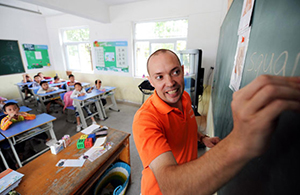The changing ground of human rights
(China Daily) Updated: 2012-12-14 08:04The environment and human rights
The environment and human rights have been identified as essential and key parameters to human life in Kenya. Therefore, the two share a strong relationship.
Interestingly though, there are instances where human economic activities that seem to protect and even enhance human rights actually violate these same rights through environmental degradation. We shall examine these under three major areas: industry, mining and farming.
Industrial pollution has led to the enjoyment and violation of individual rights in equal measure. Take, for instance, the discharge of liquid wastes by industries into rivers. While manufacturing their products with the intention of meeting the needs of their consumers - which could be helping others to enjoy human rights - they pay little attention to the fact that the wastes being dumped into the rivers contain toxic materials which could be deadly for their potential consumers using the rivers' water.
It is the right of a human being to get whatever he/she wants at any cost as long he/she does not violate the rights of others. But it is a violation of the same rights if in the process of satisfying one person's (or group of people's) rights someone causes harm to others.
The process of mining is more related to human rights violation than other factors in today's world. Mining has been the cause of several human rights violation cases in recent history. When a mineral is discovered in a given area, the news is normally received with utmost joy as people and the government concentrate their energies in fantasizing how tantalizing the profits would be and how the lives of the concerned parties would change drastically for the better.
Farming can also disrupt the environment. When farmers engage in malpractices in farming, they actually harm the environment and jeopardize the process of securing food.
In Kenya, like in many other developing countries, there is need to strike a balance between the need to protect human rights through affirmative action, and the need to take proactive steps that ensure the environment is well taken care of. As Nobel Prize winner Wangari Maathai said: "I have seen rivers that were brown with silt become clean-flowing again ... The job is hardly over, but it no longer seems impossible."
I believe we can guard our human rights and improve the environment at the same time.
Bernard Kibet Kurgat is head of the Programme of Public Education and Training of Kenya National Commission on Human Rights.












